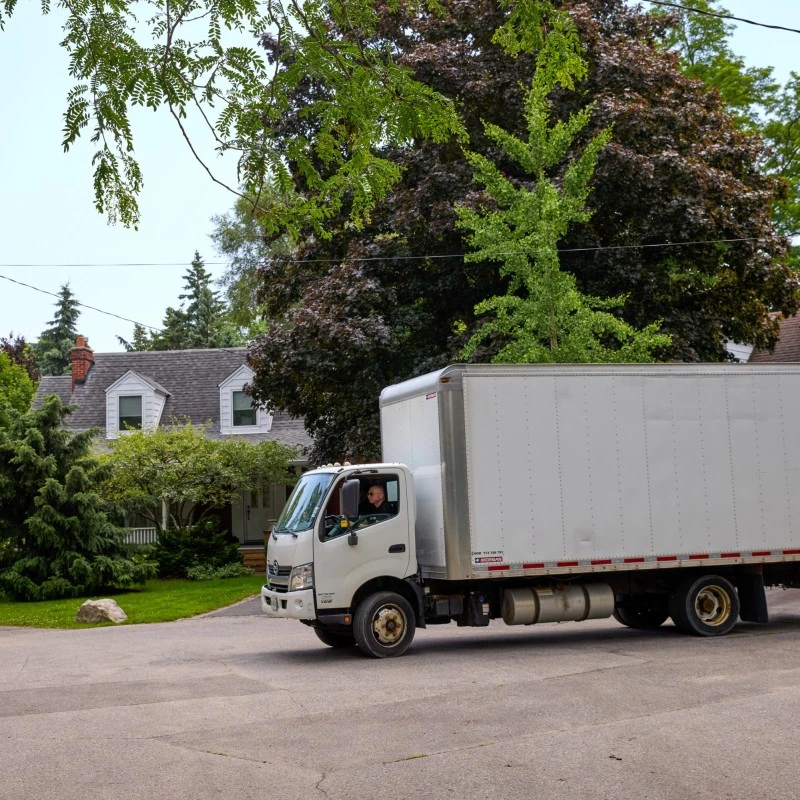A newcomer's guide to Canada's real estate market


Canada celebrates its cultural diversity and upholds its friendly, inclusive reputation by welcoming newcomers from all over.
The availability of mortgages in Canada is a huge appeal for newcomers. This combined with a welcoming immigration policy, makes moving to Canada and buying a home possible as a newcomer. Especially for those looking for more business opportunities, a higher quality of life, safe neighbourhoods, excellent education, and/or proximity to family.
To purchase a home in Canada as a newcomer, you must become familiar with the local real estate market. It’s also necessary to build credit, financial requirements—providing a down payment which is a percentage of the purchase price—and undergoing legal processes.
This article is a guide to assist newcomers in exploring and navigating the Canadian housing market in preparation for home ownership.
How does real estate work in Canada?
The Canadian market is affected by various factors such as housing types, regional differences and market trends.
Housing types in Canada that you can own include:
Condo
 Condominiums make up a building complex and are owned individually. As a condo owner, you have title over the interior of their homes. You share ownership and responsibilities of common areas with other owners in the building.
Condominiums make up a building complex and are owned individually. As a condo owner, you have title over the interior of their homes. You share ownership and responsibilities of common areas with other owners in the building.
Townhouse
 A townhouse is often multi-storied with a small yard. Although you'll have a wall or walls attached to other townhouses, it’s fully owned by you as the homeowner.
A townhouse is often multi-storied with a small yard. Although you'll have a wall or walls attached to other townhouses, it’s fully owned by you as the homeowner.
Detached home
 A detached home is a standard-sized home with a yard. You'll often have a front and a backyard, with some land between the adjacent houses.
A detached home is a standard-sized home with a yard. You'll often have a front and a backyard, with some land between the adjacent houses.
Duplex
 This is a home divided into two living units. Your house will be attached to another house.
This is a home divided into two living units. Your house will be attached to another house.
Regional differences, such as major cities vs. small towns, will greatly affect the real estate market in an area.
City real estate is normally more expensive than rural properties with higher property taxes. Large cities such as Vancouver and Toronto have some of the most expensive real estate in the world—Vancouver ranking third as the most expensive city globally.
Other factors that have a huge effect on the market include inflation, global events and politics—which cause housing prices to go up or down accordingly.
How to prepare financially for home ownership
Preparing to buy a home can seem complicated and even daunting. If you prepare thoroughly and work with skilled professionals, your first home-buying experience in Canada will be problem-free.
Credit score
Building a good credit score is imperative for purchasing a home. It increases your options for interest rates and loan amounts. Things like paying bills and credit interest payments on time build your credit score, as does keeping your credit debt at a certain percentage of your credit limit.
Experts say keeping your debt under 30% of your limit is ideal to maintain the best credit score. Borrowing money and paying off the debt quickly is another way to build your score.
Mortgage basics
A mortgage is a legal agreement where a bank or other creditor lends money at interest in exchange for taking the title of the debtor's property—with the condition that the title is returned to the owner once the debt is paid.
To get a mortgage, it’s necessary to provide a down payment on the property. This is a percentage of the purchase price. This percentage depends on the purchase price amount.
The mortgage approval process involves 6 steps:
- Get pre-approval from a mortgage lender—this shows sellers you are serious and capable of buying
- Choose a house in a suitable location that meets all your requirements and is within your budget.
- Complete the mortgage application with a mortgage broker.
- Get a loan estimate—a 3-page document presents easy-to-read home loan information and processing.
- Underwriting—this is a professional application assessment and final mortgage decision
- Close on the property by signing documents after a mortgage has been approved.
First-time buyer incentives in Canada
Governments love it when citizens buy property. Sales create economic growth for Canada. It also increases their tax revenue.
For these reasons, the federal government offers incentives for first-time home buyers.
-
Home Buyer's Plan (HBP): This allows people with RRSPs to withdraw money tax-free to buy or build a home.
-
Federal GST/HST New Housing Rebate: A decent tax rebate available to those who have bought a newly built home.
-
Property Transfer Tax (PTT) Exemption: In British Columbia, first-time home buyers are exempt from paying PTT if their property costs CA$835,000 or less.
Additional costs when purchasing a home
Property taxes
Property taxes are annual fees paid by property owners. Revenue from property taxes is used to fund provincial public services. Every municipality determines its own property tax rate.
Property tax rates range from 0.5% to 2.5% of the assessed value of your property.
You can find out your area's tax rates by calling, emailing, or visiting your municipality's website.
Legal fees
You might pay anywhere from CA$1000 to CA$3000 in legal fees when buying a home in Canada.
The amount depends on the complexity of the transaction, your lawyer’s experience level, and the type of property you are purchasing.
Home Insurance
Also known as homeowners insurance, home insurance protects your home and belongings from theft and damage. It often covers living expenses if your home isn’t livable after a disaster. Home insurance also covers accidents that may happen in your home. Rates vary by province and individual properties depending on risk factors.
The average rate for home insurance in Canada is CA$960 per year.
Land Transfer Tax
Land transfer tax rates are based on the value of your new property. Rates in Canada are as follows:
-
0.5% on amounts up to and including CA$55,000.
-
1.0% on amounts exceeding CA$55,000, up to and including CA$250,000.
-
1.5% on amounts exceeding CA$250,000, up to and including CA$400,000.
-
2.0% on amounts exceeding CA$400,000.
Home Inspection Fee
Home inspections aren’t required by law in Canada. It's, however, highly recommended to have your home professionally inspected before you sign papers—It's ideal if the real estate agent is present during the inspection.
Inspection costs can range from CA$300 to CA$600, depending on factors such as the size of your home, its location, and extra procedures such as mould or radon testing, etc.
Property Appraisal Fee
An appraisal provides an unbiased opinion of the property’s value.
The fee can cost anywhere from CA$300 to CA$500 in Canada, depending on the complexity of the building, the location, and the property type.
The home-buying process
There are 5 main steps in buying a home in Canada:
- Get mortgage pre-approval. Pre-approval confirms your creditworthiness before a purchase contract is in place. First, you complete a mortgage application. Then the lender will verify the information you provide. They will also perform a credit check.
- Find a reputable real estate agent to help you find a desirable home. They can help you find a home that suits your needs—you'll look at the property size, location, proximity to school and amenities and whether it suits your budget.
- Make an offer. When making an offer, you can offer higher than the asking price. Ypi can also include a home inspection, offer a flexible closing date, or make a 'bully offer' before the formal offer date.
- Get the home professionally inspected and assessed—For your peace-of-mind, and to know that you are getting your money’s worth, hire professionals to inspect your property and check that everything is in order.
- The most exciting step—finalise the deal!

Work with Top Move to simplify the moving process into your new home. In one simple step (filling out a Top Move form), you can expedite and simplify your whole moving process, while preventing any potential complications.
Top Move connects you with hundreds of verified moving companies bidding to meet your specific moving needs, so you can get the job done at the most affordable rates in Canada.
Again it is so important to work with reputable agents, mortgage brokers and lawyers to avoid scams, frauds, or paying way more for a house than it is worth. Just like with any major decision in life, financial or otherwise, do your research. Then do more research. Go over everything meticulously before signing papers. With the right diligence and discernment, you'll sign the papers for your new home in no time.
What do our customers say?




![The Cost of Living in Canada [2025] The Cost of Living in Canada [2025]](https://cdn.topmove.ca/image/blog/fd5e6f8de7a01a874376620f785ffdba.jpeg)

![The Cost of Living in Toronto [2025] The Cost of Living in Toronto [2025]](https://cdn.topmove.ca/image/blog/ded0549bf885e2463f6b3516d9f8f021.jpeg)
![The Cost of Living in Montreal [2025] The Cost of Living in Montreal [2025]](https://cdn.topmove.ca/image/blog/3d9ba911fae51ef6bf042019500f2c4b.jpeg)

![The Cost of Living in Calgary [2025] The Cost of Living in Calgary [2025]](https://cdn.topmove.ca/image/blog/44a5bcb6ebf6c658f5c5fe30ab7077c9.jpeg)
![The Cost of Living in Winnipeg [2025] The Cost of Living in Winnipeg [2025]](https://cdn.topmove.ca/image/blog/8874f5688baa4a1291d7eae6c507f8aa.jpeg)
![The Cost of Living in Edmonton [2025] The Cost of Living in Edmonton [2025]](https://cdn.topmove.ca/image/blog/85d8f0085c5276a3f3add5828109b82a.jpeg)
![The Cost of Living in Victoria [2025] The Cost of Living in Victoria [2025]](https://cdn.topmove.ca/image/blog/012c60baf3a9dd52b2112857fe508e4c.jpeg)
![How much do you need to earn to live comfortably in Vancouver? [2025] How much do you need to earn to live comfortably in Vancouver? [2025]](https://cdn.topmove.ca/image/blog/7036030cc91de9cff4153dc88aa88f85.jpeg)
![How much do you need to earn to live comfortably in Toronto? [2025] How much do you need to earn to live comfortably in Toronto? [2025]](https://cdn.topmove.ca/image/blog/de7b110360e9510bfcb89724b7ef9af4.jpeg)
![How much do you need to earn to live comfortably in Montreal? [2025] How much do you need to earn to live comfortably in Montreal? [2025]](https://cdn.topmove.ca/image/blog/80e0ee82a5a92d9451b96ff875513ee4.jpeg)
![How much do you need to earn to live comfortably in Calgary? [2025] How much do you need to earn to live comfortably in Calgary? [2025]](https://cdn.topmove.ca/image/blog/46fef724030602a02f51110ffb3ac569.jpeg)
![How much do you need to earn to live comfortably in Winnipeg? [2025] How much do you need to earn to live comfortably in Winnipeg? [2025]](https://cdn.topmove.ca/image/blog/d52ddc1f425f60fd553dcc00f7eb0fb5.jpeg)

![How much do you need to earn to live comfortably in Victoria? [2025] How much do you need to earn to live comfortably in Victoria? [2025]](https://cdn.topmove.ca/image/blog/f0bdeb7f43a3340afba84793c4fddbac.jpeg)







